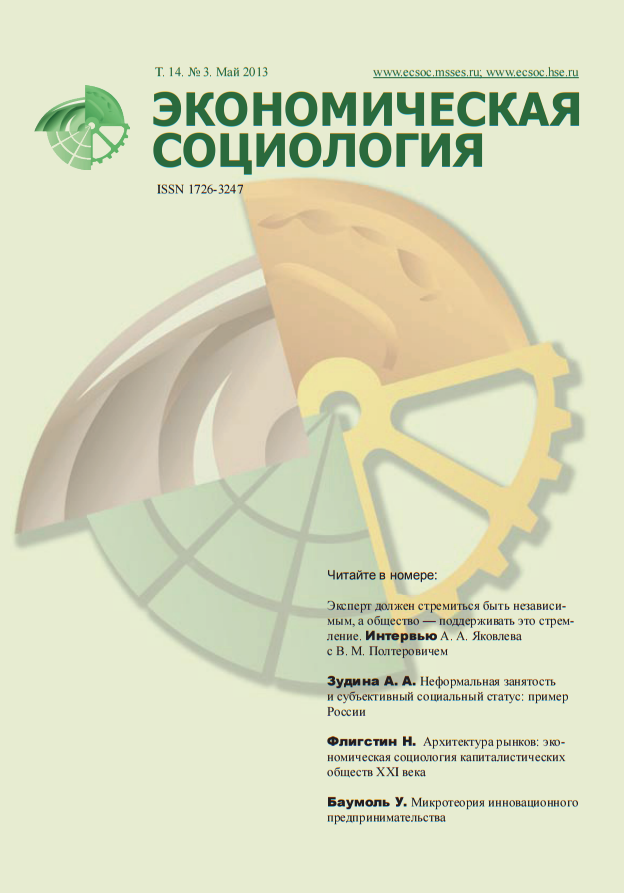Informal Employment and Subjective Social Status: The Case of Russia
Keywords:
informal employment, social stratification, labour market, labour mobility, subjective social status, RLMS-HSE
Abstract
Numerous studies of informal employment were focused on its possible impact on the income of informal workers. However, the consequences of informal employment regarding the socioeconomic position of workers and social inequality in general could not be reduced to mere monetary changes. This article presents the results of an empirical study of the subjective social status of informal workers in Russia from 2000–2010.The study was carried out on the basis of a large nationally representative panel: the Russia Longitudinal Monitoring Survey at the Higher School of Economics (RLMS-HSE) for the years 2000–2010.
The dynamics in the average subjective social status of different categories of informal employment are investigated and compared to formal employment, unemployment and other economically inactive states. Special attention is paid to the analysis of informal employment as a factor in subjective social status. For these purposes, ordered probit regressions were estimated for each of 11 RLMS-HSE waves and then panel regressions with fixed effects were conducted to reveal potentially unobserved effects that might result in self-selection into the employment sector or the initial psychological inclination towards certain self-estimations. The conducted step-by-step analysis obtained significant changes in the self-estimations of self-employed people which tend to be mainly associated with men. Irregular workers are deemed to be most vulnerable if compared with other categories of informal employed people.
Thus, there is no evidence to argue that informality serves as a mechanism of social stratification according to which informally employed people are referred to as “second class”. The findings represent not so much a characteristic of informal employment in the Russian labour market as an indicator of quality of formal institutions, because the formal sector is deemed by working people to be unrelated to opportunities for personal welfare or to a social care system.
Published
2013-08-14
How to Cite
Зудина А. А. (2013). Informal Employment and Subjective Social Status: The Case of Russia. Journal of Economic Sociology, 14(3), 27-63. https://doi.org/10.17323/1726-3247-2013-3-27-63
Section
New Texts













